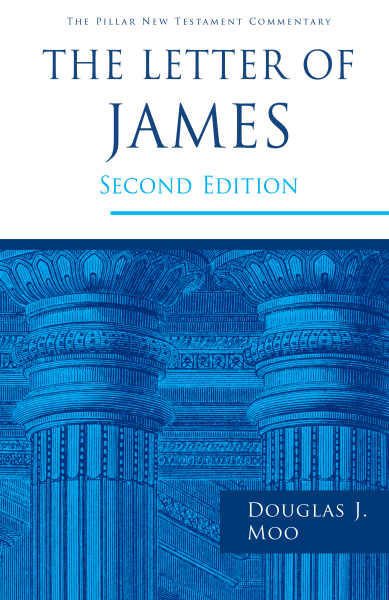
Tap on a feature to learn more.
Available for:
iPad, iPhone, Android, Mac, and Windows.
Few New Testament books have been as controversial and misunderstood as the letter of James. Its place in the canon was contested by some early Christians, and the reformer Martin Luther called it an “epistle of straw.” The sometimes negative view of the letter among modern theologians, however, is not shared by ordinary believers. Well known and often quoted, James is concise, intensely practical, and filled with memorable metaphors and illustrations. As such, it has become one of the most popular New Testament books in the church.
This highly original commentary on James by respected New Testament scholar Douglas Moo combines penetrating scholarship with the simplicity of style and pastoral tone characteristic of James itself. After discussing such background issues as authorship, genre, purpose, structure, and theology, Moo provides a verse-by-verse exposition of the text that leads readers to the heart of James’s message—wholehearted commitment to Christ. In addition to expounding the meaning of James, Moo also takes care to provide practical insights for applying that meaning in the church today.
At once scholarly and accessible, this volume has become a standard commentary on James. The second edition is based upon the newest version of the NIV and incorporates the latest scholarship. It has been expanded, updated, and revised throughout.The Pillar New Testament Commentary, designed for serious readers of the Bible, seeks above all to make clear the meaning of the text of Scripture as we have it. Writers of the PNTC volumes interact with the most important, informed contemporary debate yet avoid undue technical detail. Their ideal is a blend of rigorous exegesis and exposition, scholarship and pastoral sensitivity, with an eye alert both to biblical theology and to the contemporary relevance of the Bible.
“There is much to be gained from this commentary, both exegetical and practical, by pastors and serious students.” — Southwestern Journal of Theology
“Moo has many insights into the challenges James presents to the Church of his time and of today. James’s contention, that Christians must not only reflect theologically about life but also live a holy and obedient lifestyle, is a timely word which ought to be heard and heeded, especially in the western Church of this new millennium. . . . This re-evaluation of James is much to be commended.” — Methodist Recorder
“The commentary is most valuable for its excellent exegesis, which is not so technical that the non-scholar would find it tedious. Homiletical and devotional insights, which pervade the work, also make the volume a worthwhile addition to the Bible student's library.” — Interpretation
“Douglas Moo is well known to New Testament commentary readers, both from his magisterial volume on Romans in The New International Commentary on the New Testament and from his excellent little work on James in the Tyndale series. Fully abreast of the latest scholarship on James, Moo here walks readers with remarkable clarity through even complex exegetical issues. He consistently comes to convincing conclusions. As a bonus, he occasionally inserts comments by way of application that reflect his warm pastoral heart. Highly recommended.” — Craig L. Blomberg Denver Seminary
“This commentary offers something for everyone: it is simple enough for every Christian believer to benefit from yet profound enough to challenge scholars in their presuppositions and interpretations.” — Dean B. Deppe, author of All Roads Lead to the Text: Eight Methods of Inquiry into the Bible
“Sure to stimulate readers’ interest in the ‘quest of the historical James,’ Moo’s volume provides illuminating commentary on this important New Testament book. Rich word studies and up-to-date background material—especially drawn from the Jewish Wisdom tradition—make this a notable addition to the current literature. Particularly valuable are sections on ‘faith and works’ and the vexed topic of ‘prayer, faith, and healing.’ Moo writes clearly and succinctly, and his understanding the theme of James to be ‘spiritual wholeness’ adds an extra dimen¬sion to his academic approach. Whether in the classroom or in the pastor’s study, this commentary will be much welcomed and valued.” — Ralph P. Martin, author of the Interpretation commentary on Ephesians, Colossians, and Philemon
Douglas J. Moo is the Kenneth T. Wessner Professor of New Testament at Wheaton Graduate School. His other commentaries include the NICNT volume on Romans and the PNTC volume on Colossians and Philemon.